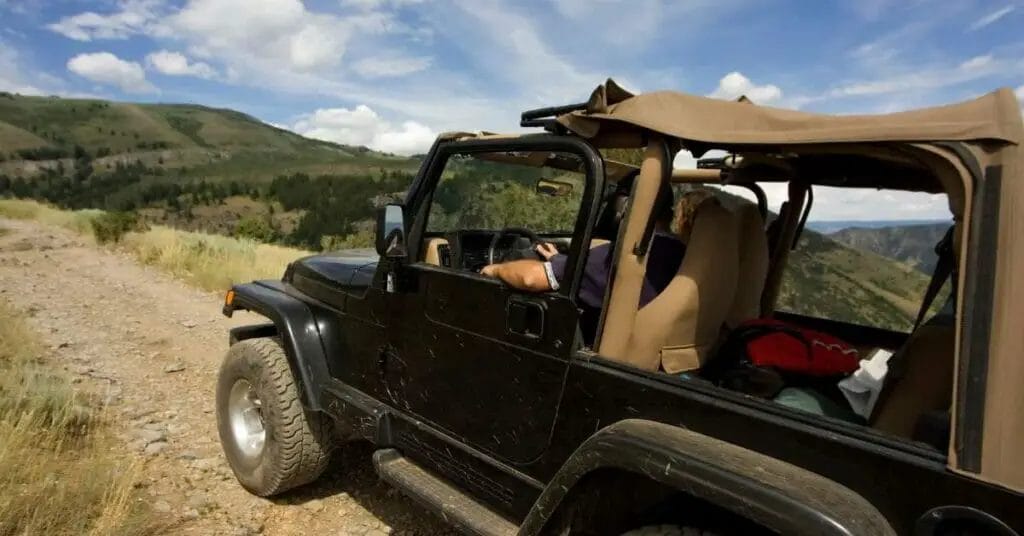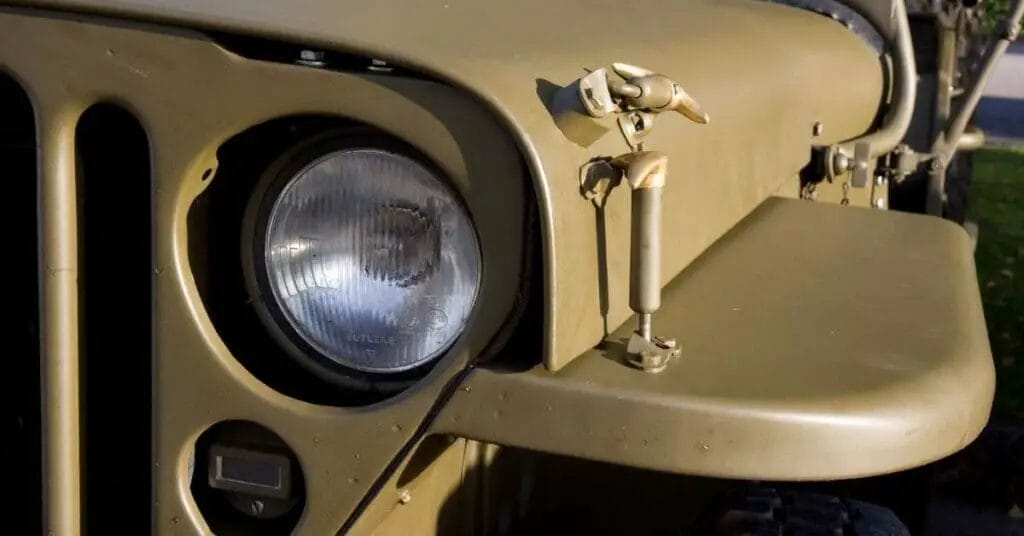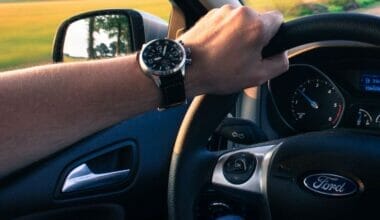A little bit of noise from your jeep is normal. What isn’t is the incessant irritating clicking noise from it.

Listening to it every time you drive is annoying, but fixing it should not be a daunting task.
In this guide, we will show you how to easily diagnose and fix the clicking noise in your beloved Jeep, ensuring a smooth and enjoyable driving experience.
Whether it’s a persistent clicking sound while turning, accelerating, or even at idle, we understand how frustrating it can be.
Our team of experts has compiled a comprehensive step-by-step process to identify the source of the clicking noise and provide you with practical solutions.
From checking the CV joints and axle shafts to inspecting the suspension components, we leave no stone unturned in helping you get rid of that pesky clicking noise.
So, if you’re ready to say goodbye to the annoyance and get back to enjoying your Jeep’s performance, let’s dive into the world of troubleshooting and fixing the clicking noise together!

Common Causes of Clicking Noise in a Jeep
When it comes to diagnosing and fixing a clicking noise in your Jeep, it’s essential to understand the common causes behind it.
By identifying the root cause, you can save time and effort in finding a solution. Here are some of the most typical culprits:
Worn CV Joints
One of the primary causes of clicking noise in a Jeep is worn CV joints.
These joints connect the drive shafts to the transmission and wheels, allowing the vehicle to transfer
power while maintaining flexibility.
Over time, the protective rubber boots covering the CV joints may become damaged, leading to dirt and debris entering the joint and causing a clicking sound.
Faulty Axle Shafts
Axle shafts are responsible for transmitting power from the transmission to the wheels. If the axle shafts are damaged or worn out, they can produce a clicking noise.
This is commonly heard when making sharp turns, indicating a problem with the constant velocity (CV) joints at the ends of the axle shafts.
Worn Suspension Components
The suspension system of your Jeep plays a crucial role in providing a smooth and comfortable ride.
However, worn-out suspension components, such as bushings, ball joints, or control arm bushings, can create clicking noises.
These components can wear down due to regular use, exposure to harsh conditions, or lack of proper maintenance.
Diagnosing the Clicking Noise
Identifying the source will help you narrow down the potential causes and apply the right solution.
Here’s a step-by-step guide to diagnosing the clicking noise in your Jeep:
- Pay close attention to when and where the clicking noise occurs. Is it more noticeable when turning, accelerating, or braking? Does it happen only during specific driving conditions?
Gathering this information will help you pinpoint the probable cause. - Start by inspecting the CV joints for any signs of damage or excessive wear. Look for torn or cracked rubber boots, as well as any clicking or grinding sounds when you rotate the joint by hand. If you notice any issues, it’s likely that the CV joints require attention.
- Examine the axle shafts for any visible damage, such as cracks or bends. Additionally, inspect the CV joints at the ends of the axle shafts for signs of wear or damage. If you find any issues, it’s crucial to address them promptly.
Fixing a Clicking Noise in the Engine
If you’ve identified that the clicking noise in your Jeep is coming from the engine, there are a few potential causes to consider.
Here are some common fixes for engine-related clicking noises:
- Check for loose components, such as belts, pulleys, or brackets, that could be causing the clicking noise. Tighten them as necessary to eliminate the sound.
- The valvetrain consists of various components, including the camshafts, lifters, and valves. If any of these components are worn or damaged, they can produce clicking noises. Inspect the valvetrain for any issues and replace or repair the affected parts.
- Check for Low Oil Levels: Insufficient lubrication can lead to increased friction and clicking noises in the engine. Check the oil level and top it up if necessary.
Additionally, ensure that you are using the correct type and viscosity of oil recommended by the manufacturer.
Fixing a clicking noise in the engine requires precision and knowledge. If you’re unsure about performing these repairs yourself, it’s advisable to seek professional help to avoid further complications.
Fixing a Clicking Noise in the Suspension
A clicking noise in the suspension can greatly impact your driving experience. Here are some steps to fix this issue:
- Worn or damaged bushings can cause clicking noises in the suspension. Inspect the bushings for cracks, tears, or excessive play. Replace any faulty bushings to eliminate the clicking sound.
- Loose or worn ball joints can also contribute to clicking noises in the suspension. Inspect the ball joints for any signs of damage or excessive play. If you notice any issues, consider replacing them.
- Control arm bushings provide crucial support to the suspension system. If they are worn or damaged, they can create clicking noises. Inspect the control arm bushings and replace any faulty ones.

Fixing a Clicking Noise in the Brakes
Clicking noises when braking can be alarming and indicate potential brake problems. Here’s what you can do to fix this issue:
- Worn-out or damaged brake pads can produce clicking noises. Remove the wheels and inspect the brake pads for wear. If they are below the recommended thickness, replace them promptly.
- Faulty brake calipers can cause clicking noises due to loose or misaligned components. Inspect the calipers for any visible damage or signs of improper installation. If necessary, repair or replace the calipers.
- Dirty or corroded brake hardware, such as clips, shims, or springs, can create clicking noises. Remove the brake hardware, clean it thoroughly, and lubricate it with suitable brake grease. If the hardware is damaged, replace it.
Fixing a Clicking Noise in the Steering System
A clicking noise in the steering system can indicate underlying issues that require attention. Here’s how you can address it:
- Insufficient power steering fluid can cause the power steering system to make clicking noises.
Check the fluid level and top it up if necessary. Ensure you use the recommended type of power steering fluid.
- Loose or worn steering components, such as tie rod ends or steering rack bushings, can create clicking noises.
Inspect these components for any visible damage or excessive play. Replace or repair any faulty parts as needed.
- Check for loose connections in the steering system, such as tie rod end nuts or steering column fasteners.
Tighten them to eliminate any clicking noises caused by loose components.
Fixing a Clicking Noise in the Drivetrain
If you’ve identified that the clicking noise is coming from the drivetrain, there are a few potential causes to consider. Here are some common fixes for drivetrain-related clicking noises:
- Universal joints are critical components of the drivetrain that allow for smooth power transmission. Worn or damaged universal joints can produce clicking noises. Inspect the universal joints for any signs of wear or damage. Replace them if necessary.
- The transfer case is responsible for distributing power to the front and rear wheels. If it’s damaged or worn, it can create clicking noises. Inspect the transfer case for any issues and repair or replace it as needed.
- A faulty differential can also cause clicking noises in the drivetrain. Inspect the differential for any visible damage or signs of wear. If you notice any issues, consider repairing or replacing the differential.
Preventive Maintenance to Avoid Clicking Noises
To minimize the chances of clicking noises in your Jeep, regular preventive maintenance is crucial. Here are some maintenance tips to follow:
- Regularly inspect and lubricate components such as CV joints, axle shafts, suspension components, and steering system parts. This helps reduce wear and prevent clicking noises caused by friction.
- If you notice any signs of wear or damage during inspections, promptly replace the affected components. This prevents further damage and potential clicking noises.
- Adhere to the recommended maintenance schedule provided by the manufacturer. This ensures that your Jeep receives timely service, reducing the likelihood of clicking noises caused by neglected maintenance.
When to Seek Professional Help for a Clicking Noise
While many clicking noise issues can be resolved with DIY fixes, some may require the expertise of a professional mechanic. Here are some situations where it’s advisable to seek professional help:
- If you’re unsure about performing the necessary repairs or lack the required tools and equipment.
- If the clicking noise persists even after attempting DIY fixes.
- If you’re unable to accurately diagnose the source of the clicking noise.
- If the clicking noise is accompanied by other unusual symptoms, such as vibrations or loss of power.
Remember, professional mechanics have the knowledge and experience to accurately diagnose and fix complex issues in your Jeep’s clicking noise.
